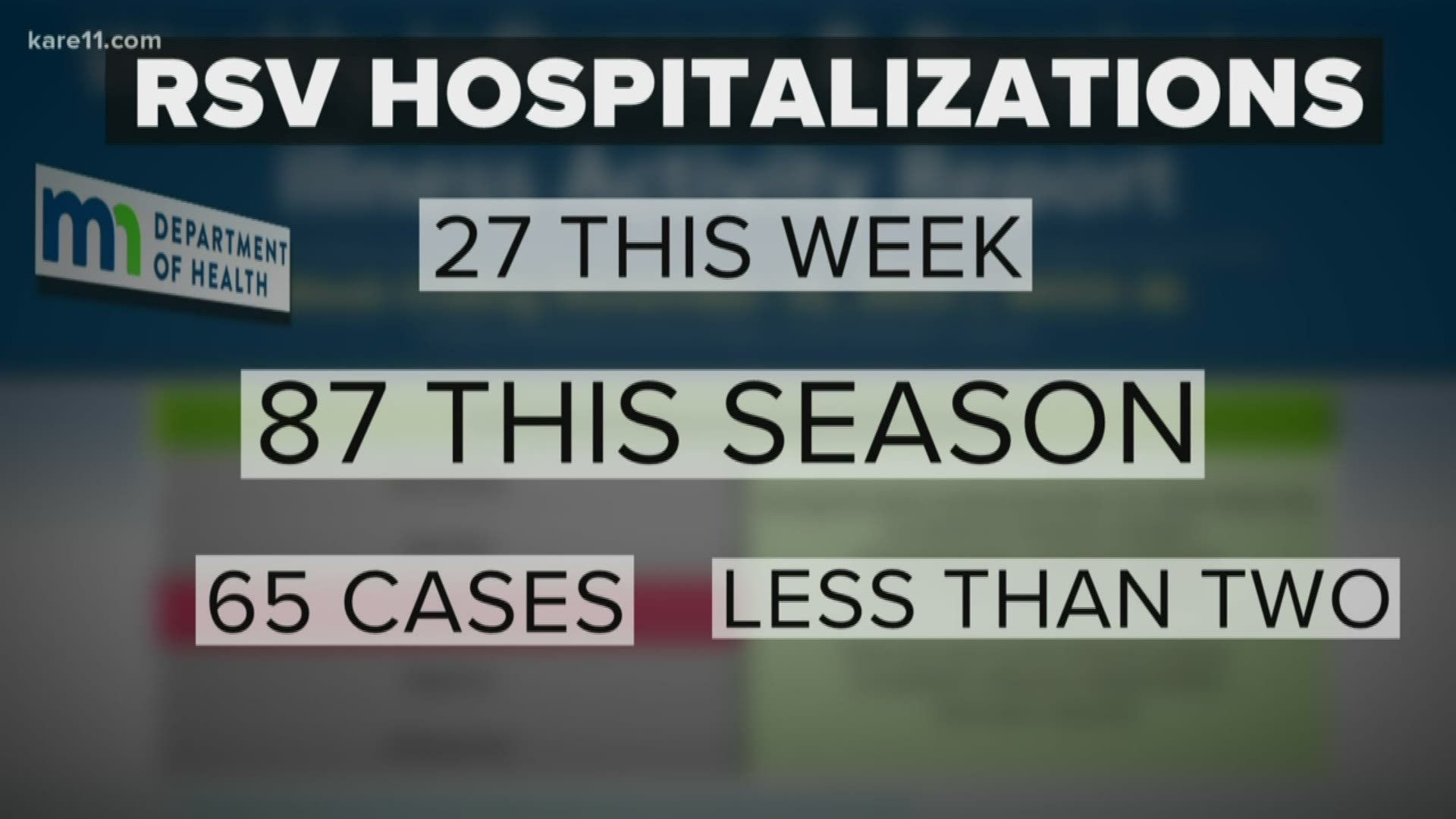MINNEAPOLIS — It's that time of year when the U of M's Masonic Children's hospital is seeing more kids fighting Respiratory Syncytial Virus, also known as RSV.
Kent Erdahl: "What would you tell parents concerned about RSV?"
Dr. Bazak Sharon, M Health Fairview: "That everyone gets it, sooner or later, RSV is a virus that all humans get, usually before the age of three. The important thing is just making sure that your baby is not part of the very, very few that get complicated because RSV Bronchiolitis can get very complicated."
RSV led to Bronchiolitis and a trip to the ICU for 6-month-old Henry from Hastings earlier this month, and he's not alone.
"We generally see this uptick in late October, early November, with an increase through December," said Kathryn Como-Sabetti, Epidemiologist Supervisor for the Minnesota Department of Health. "They usually start to decrease some time in January."
According to a weekly report from MDH, there were 27 RSV hospitalizations in just the last week, making 87 so far this season. Of those, 65 were kids less than two years old.
"We only count people who are hospitalized for the disease," said Kathryn Como-Sabetti, Epidemiologist Supervisor for the Minnesota Department of Health. "Those are the only cases we get information about."
"It's definitely the tip of the ice berg of really how many kids there are with that virus," Dr. Sharon said.
Dr. Sharon says most parents simply need to stay vigilant because most cases start with cold-like symptoms, but even babies like Henry will come around with good medical care.
Kent Erdahl: "We're a week out from Thanksgiving. A lot of families show up, want to love on those little ones, should we be doing that?"
Dr. Bazak Sharon, M Health Fairview: "If the child is really young, less than three months, I would not advise someone who has a fever or a cold themselves to be too close. And wash your hands, wash your hands, wash your hands. I can say it a lot but this is really where it starts."
Doctors tell us premature babies and those born with chronic lung conditions are most at risk for RSV bronchiolitis or pneumonia. If you notice fast breathing, flared nostrils or wheezing, seek medical attention.

